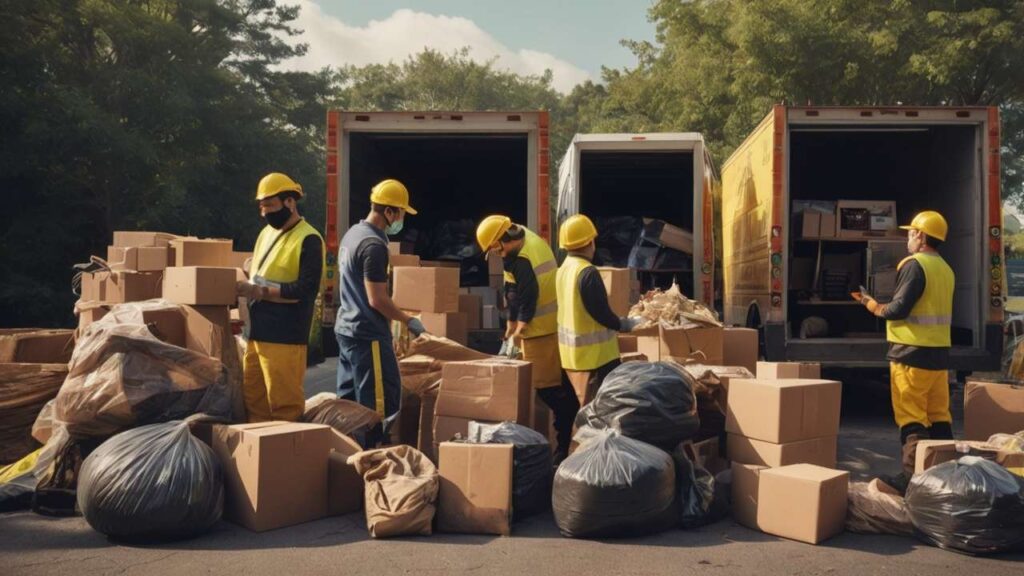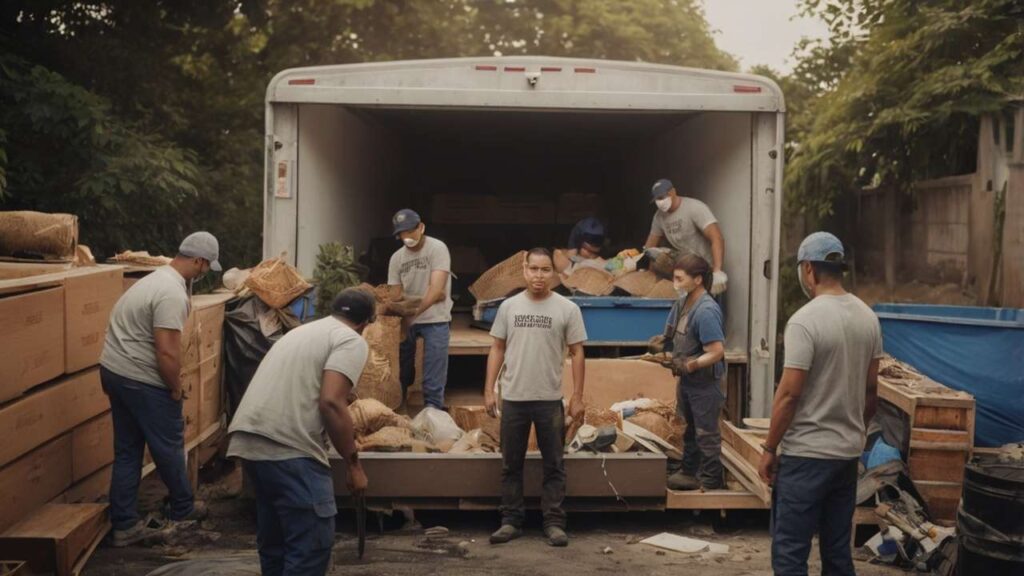A messy home isn’t just an eyesore—it eats away at your focus, fuels stress, and quietly chips away at your productivity. The hidden cost of clutter is not only about tripping over boxes in the hallway or losing important papers in a pile of unopened mail. It’s also about the mental load, the weight of unfinished tasks, and the lost time we never get back. Many of these words are being written from a desk that, honestly, took me two hours to clear last week. Once it was done though, I felt lighter—like I could finally think again. That’s the underestimated power of reclaiming your home space.
Experts have said that clutter is linked directly to higher cortisol levels, which explains why even a small pile of junk can spark anxiety. In fact, the hidden cost of clutter often isn’t recognized until you notice how much energy it drains. Some people even report that their sleep improves once they reduce the mess in their bedrooms. The point is clear: clutter isn’t harmless, and tackling it might just be the best stress reliever you haven’t tried yet.
The Link Between Clutter and Stress
Let’s be honest—nobody enjoys waking up and seeing a mountain of laundry or half-empty boxes shoved into the corner. It’s more than annoying; it creates mental noise. Studies published in psychology journals highlight that messy environments make it harder for the brain to focus and process information. Personally, I’ve noticed on days where my living room is clean, I’m less irritable, almost like my brain can finally “exhale.”
This stress isn’t just mental. It has physical consequences too—tension headaches, fatigue, even poor posture from navigating around junk. Imagine constantly stepping over bags just to get to your kitchen; that tiny inconvenience adds up and strains both mind and body. That’s why trusted professionals in junk removal in North Carolina often frame their services not only as cleaning jobs but as life-quality upgrades. They understand you’re not just clearing things—you’re clearing mental space.
Productivity Loss from a Messy Home
The hidden cost of clutter is most visible in productivity. Think about how many times you’ve wasted ten minutes searching for your keys, or that phone charger buried under papers. It doesn’t sound like much until you realize those minutes add up to hours across a month. According to workplace organization experts, clutter can reduce efficiency by up to 40%.
Here’s a personal example: a friend of mine converted his attic into a home office during the pandemic. At first, the room was jammed with old boxes and childhood toys. He admitted he felt drained just stepping inside. But after he used a professional junk removal service, that attic became his most productive workspace. He said it was like reclaiming not just square footage, but also his motivation.
Organizing habits—like using clear bins, labeling cords, or sticking to a weekly “15-minute tidy”—might sound trivial, but they act like preventive care. Similar to how car owners benefit from timely engine oil changes, homeowners benefit from consistent clutter control.
Decluttering for Mental Peace and Focus
Mental health professionals often advise patients with anxiety to start small: clear one drawer, one shelf, or one bag of trash. Why? Because clutter has been linked to feelings of overwhelm and reduced concentration. The brain craves order, and a clean environment helps restore it.
The hidden cost of clutter often reveals itself in emotional triggers. People may feel guilt about wasted money (that treadmill doubling as a clothes rack), or shame when guests visit. By reclaiming your home space, you’re not only creating usable square footage—you’re regaining confidence.
I once heard an expert in home organization say: “Every object you keep should earn its place by either being useful or bringing joy. Otherwise, it’s just renting space in your head.” That’s the type of wisdom that sticks.
Professional Help vs. DIY
Of course, you might be tempted to tackle it all yourself—and sometimes that works. But for larger projects, like an estate cleanout or a garage filled to the ceiling, calling in a professional junk removal expert in North Carolina can save enormous time and emotional energy. I’ve seen DIY jobs stretch across weeks, with homeowners burning out halfway. In contrast, professionals handle it in a single afternoon, often with recycling and donation networks built in.
This ties back to topics like Professional Junk Removal vs. DIY: A Complete Cost and Time Breakdown and Beyond the Trash Can: How to Legally Dispose of E-Waste and Hazardous Household Junk. Both highlight that junk removal isn’t only about hauling bags; it’s about navigating disposal rules, protecting the environment, and making sure potentially dangerous materials like old batteries or paint cans don’t end up in the wrong place.
The Emotional Side of Letting Go
Decluttering isn’t always about speed. Some items carry memories—photos, furniture, clothing. That’s where compassion matters. Services specializing in estate and downsizing projects often emphasize compassionate cleanouts, where the emotional weight of each item is respected. Families grieving after a loved one’s passing, for instance, need sensitivity as much as efficiency.
The hidden cost of clutter shows up heavily here: dragging emotional decisions for months can delay healing. Reclaiming space becomes a form of closure.
Expanding the Conversation: Future Insights
Clutter, like most challenges, isn’t one-dimensional. Beyond the points above, readers often crave guidance on specialized angles. For instance, learning about The Second Life of Junk: How Professional Haulers Recycle, Repurpose, and Donate sparks interest in sustainable practices. Or diving deeper into e-waste disposal educates homeowners on legal and eco-friendly methods.
But there’s more room for exploration: the role of clutter in family conflicts, how digital clutter (like endless unread emails) mimics physical mess, and even the surprising link between decluttered spaces and healthier eating habits. Each of these future conversations keeps the topic relevant, actionable, and deeply personal.
Case Study: A Living Room Reclaimed
Take the story of Marsha, a busy mom in Raleigh. Her living room had slowly turned into a storage unit—broken toys, boxes of clothes, holiday decorations left unpacked. She admitted she avoided inviting friends over because of embarrassment. Finally, she hired a trusted junk removal service. Within one day, her living room was cleared. A week later, she texted me a photo of her kids doing homework on the coffee table. That’s more than clutter gone—it’s family life restored.
FAQs
1. How does clutter impact mental health?
Clutter increases stress hormones, disrupts focus, and can even cause anxiety. A clean space supports calmness and better concentration.
2. Is professional junk removal worth the cost?
Yes. For large projects or sensitive situations, professionals save time, reduce physical strain, and often handle recycling and donations responsibly.
3. What’s the best way to start decluttering?
Begin small. Focus on one drawer or one corner of a room. Consistency matters more than speed—it’s about creating a new habit.
The hidden cost of clutter is more than just piles of unused items—it’s about lost time, drained energy, and missed opportunities for peace. Reclaiming your home space is less about perfection and more about progress. Whether you take the DIY route or lean on reliable professionals in North Carolina, the payoff is always worth it: clearer rooms, calmer minds, and more freedom in your daily life.
If you found this post valuable, share it on your social media using the share buttons below. You never know whose life might get a little lighter by tackling the clutter holding them back.



